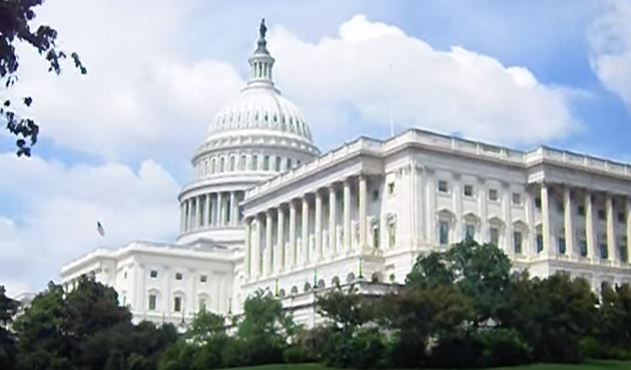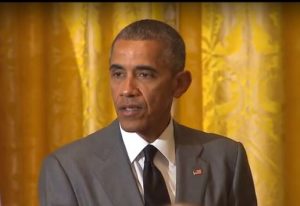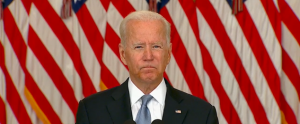
The Guardian / UK: Barack Obama suffered a unique political blow on Wednesday, when the US Congress overturned his veto of a bill that would allow families of the victims of the September 11 terrorist attacks to sue Saudi Arabia.
The overwhelming bipartisan vote in both the Senate and House inflicted the first veto override of Obama’s presidency, less than four months before he leaves office. The White House issued an unusually scathing response.
“I would venture to say that this is the single most embarrassing thing that the United States Senate has done, possibly, since 1983,” press secretary Josh Earnest told reporters. “Ultimately these senators are going to have to answer their own conscience and their constituents as they account for their actions today.”
Obama expressed disappointment. “The concern that I’ve had has nothing to do with Saudi Arabia per se or my sympathy for 9/11 families, it has to do with me not wanting a situation in which we’re suddenly exposed to liabilities for all the work that we’re doing all around the world, and suddenly finding ourselves subject to the private lawsuits in courts where we don’t even know exactly whether they’re on the up and up, in some cases,” he told CNN.
“So this is a dangerous precedent and it’s an example of why sometimes you have to do what’s hard. And, frankly, I wish Congress here had done what’s hard. I didn’t expect it, because if you’re perceived as voting against 9/11 families right before an election, not surprisingly, that’s a hard vote for people to take. But it would have been the right thing to do.”
The legislation will permit courts to waive a claim of foreign sovereign immunity when an act of terrorism occurs inside US borders, according to the terms of the bill. Saudi Arabia has objected strongly to the legislation and has categorically denied any role in the 9/11 attacks. Fifteen of the 19 plane hijackers were Saudi nationals.
The measure passed the Senate and House unanimously in May and September, but Obama vetoed it last Friday, claiming it would make the US vulnerable to retaliatory litigation in foreign courts that could put American troops in legal jeopardy. Proponents of the Justice Against Sponsors of Terrorism Act (JASTA) insist that it is narrowly tailored and applies only to acts of terrorism that occur on US soil.
Many senators and representatives are also reluctant to oppose an emotive, popular measure and be seen as soft on terrorism with elections just weeks away.
The Senate voted 97-1, with the Democratic minority leader, Harry Reid of Nevada, alone in supporting the veto. The House followed suit a short time later, voting 348-77 to override and putting Congress directly at odds with the White House and national security establishment.
Chuck Grassley, chairman of the Senate judiciary committee, said the families of 9/11 victims favoured the measure and accused Obama of bowing to Saudi pressure. “All they want is the opportunity to present their case in a court of law,” he said on the Senate floor. “And that’s what this legislation would give them.
“The legislation has run into opposition because it is opposed by Saudi Arabia, who has been making threats against the United States about what it might do if Congress stands with the American people and 9/11 victims and their families, instead of the Saudis.
“And now, according to press reports, the Saudis have gone out and hired an army of lobbyists to work furiously in a last-minute attempt to derail it.”
Bipartisan agreement has been scarce during the Obama years. Texas senator John Cornyn noted: “This is pretty much close to a miraculous occurrence because Democrats and Republicans, senators [and] House members have all agreed the Justice Against Sponsors of Terrorism Act, which gives the victims of a terrorist attack on our own soil an opportunity to seek the justice they deserve.”
The Republican pushed back against Obama’s objections. “He cites concerns that the bill would ‘create complications’, he says, with some of our close partners, but the truth is JASTA only targets foreign governments who sponsor terrorist attacks on American soil, plain and simple.”
The bill was revived last year by Cornyn and New York Democratic senator Chuck Schumer, who said on Wednesday: “This is a decision I do not take lightly. This bill is near and dear to my heart as a New Yorker, because it would allow the victims of 9/11 to pursue some small measure of justice, finally giving them a legal avenue to pursue foreign sponsors of the terrorist attack that took from them the lives of their loved ones.”
Later, Schumer was quoted by the Associated Press as saying: “The White House and the executive branch [are] far more interested in diplomatic considerations. We’re more interested in the families and in justice.”
But during the Senate debate, Bob Corker of Tennessee, chairman of the Senate foreign relations committee, acknowledged the president’s concerns over sovereign immunity procedures and admitted he had difficulty supporting the bill, which “has problems”.
He concluded: “With tremendous reservations and concerns about where this legislation is going to lead us, with tremendous empathy towards the victims that have lived through so much, have seen loved ones gone, that has affected their lives and will affect their lives for the long term, I’m going to support passage of this legislation today, but I do so understanding that there could be in fact unintended consequences that work against our national interest and with a determination, should that occur, to work with others in this body to try to overcome that.”
Hillary Clinton’s running mate, Senator Tim Kaine of Virginia, and her primary opponent, Senator Bernie Sanders of Vermont, were both campaigning on her behalf and were not present for the vote. Former New York City mayor Rudy Giuliani, who was in office on 9/11 and is now an adviser for Republican presidential nominee Donald Trump, called it a failure for Kaine and said that he was “obviously afraid to show up to work today and stand with these Americans, is a disgrace. It demonstrates his basic inadequacy as a leader.”
John Brennan, the director of the CIA, warned that the legislation would have “grave implications” for US national security. Speaking at a forum in Washington, he said: “The most damaging consequence would be for those US government officials who dutifully work overseas on behalf of our country. The principle of sovereign immunity protects US officials every day, and is rooted in reciprocity. If we fail to uphold this standard for other countries, we place our own nation’s officials in danger.”
The vote deals a late blow to Obama on an issue he feels keenly about at a time when his personal popularity is riding high. During his nearly two full terms in office, Obama has never had a veto overridden by Congress. The last time an administration got through eight years without Congress overriding a veto was the Kennedy-Johnson administration in the 1960s.
On Tuesday, Earnest said: “The president has strong views about this legislation and the impact that it would have not just on the US relationship with Saudi Arabia, but with countries around the world. It would increase the risk that is facing our service members and our diplomats and our intelligence professionals. And that is a view that president has stated on a number of occasions.”
In a letter sent to Reid this week, Obama warned the bill would erode sovereign immunity principles that prevent foreign litigants “from second-guessing our counter-terrorism operations and other actions that we take every day”.





